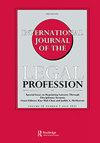The nature of the disciplinary system over Myanmar lawyers: differences from international standards and implications for international legal transplants
IF 0.9
Q2 LAW
International Journal of the Legal Profession
Pub Date : 2021-01-08
DOI:10.1080/09695958.2020.1867148
引用次数: 1
Abstract
ABSTRACT International organizations such as the International Bar Association (IBA), International Commission of Jurists (ICJ), and United Nations (UN) have been engaged in efforts to reform Myanmar's laws regarding the legal profession as part of larger rule-of-law initiatives in the country. Part of such efforts are strategies to change professional conduct rules to match international practices in the regulation of lawyers. The present analysis focuses on the disciplinary mechanisms for lawyers in Myanmar. The analysis seeks to determine the extent to which Myanmar's existing disciplinary mechanisms for lawyers deviate from international standards held by the IBA, ICJ, and UN. The analysis argues that the structural nature of Myanmar’s disciplinary system renders it incapable of meeting international expectations because it sustains British colonial laws that centralized power over lawyers underneath institutions of the state. The analysis identifies the significance of these deviations for international legal transplant efforts.缅甸律师惩戒制度的性质:与国际标准的差异及其对国际法律移植的影响
国际律师协会(IBA)、国际法学家委员会(ICJ)和联合国(UN)等国际组织一直致力于改革缅甸有关法律职业的法律,作为该国更大的法治倡议的一部分。这类努力的一部分是制定战略,改变职业行为规则,使之与管理律师的国际惯例相匹配。本分析的重点是缅甸律师的惩戒机制。该分析旨在确定缅甸现有的律师纪律机制在多大程度上偏离了国际律师协会、国际法院和联合国所持有的国际标准。分析认为,缅甸纪律制度的结构性质使其无法满足国际期望,因为它维持了英国殖民法律,将权力集中在国家机构之下的律师身上。分析确定了这些偏差对国际法律移植工作的重要性。
本文章由计算机程序翻译,如有差异,请以英文原文为准。
求助全文
约1分钟内获得全文
求助全文

 求助内容:
求助内容: 应助结果提醒方式:
应助结果提醒方式:


